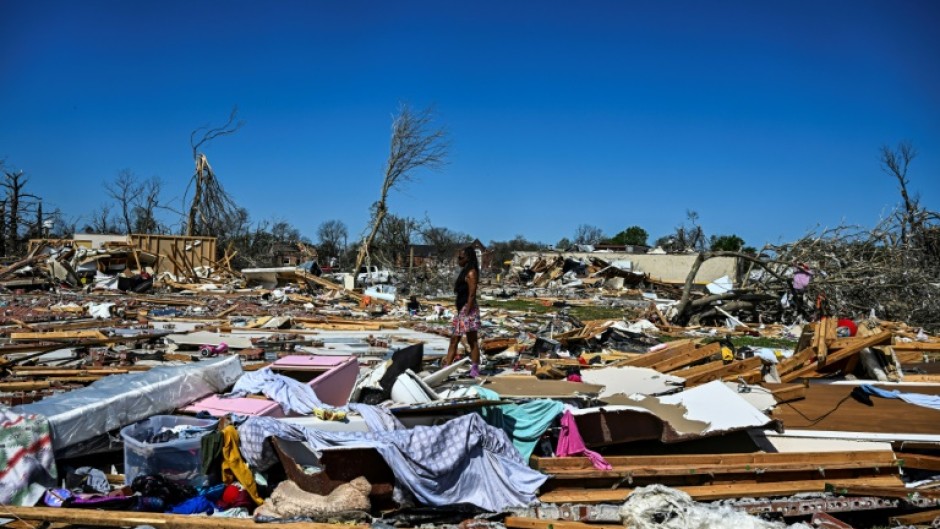
ROLLING FORK - Storm-ravaged Mississippi struggled on Sunday with the aftermath of a huge tornado that tore across the southern US state, killing at least 25 people, with devastated communities bracing for a fresh bout of extreme weather.
Search-and-rescue workers surveyed the damage of shredded homes, flattened buildings and smashed cars in Rolling Fork, a small town all but wiped out by nature's wrath.
After President Joe Biden freed up disaster aid, the National Weather Service (NWS) warned residents of Mississippi and neighboring Alabama of potential new "supercell thunderstorms" through late Sunday that could "produce a few strong tornadoes and very large hail."
The NWS gave Friday's tornado -- which left a trail of havoc more than 160 kilometres long across the state -- a rating of four out of five on the Enhanced Fujita scale, with ferocious winds of up to 320km/h.
Dozens of people have also been injured, and officials say the death toll could rise.

Before-and-after satellite images released late Sunday showed utter ruin across parts of Rolling Fork, with homes destroyed and trees ripped out of the earth.
READ: "Like a war zone": volunteers travel miles to tornado-hit Mississippi
The American Red Cross moved into a National Guard building in Rolling Fork hours after the storm razed much of the town, home to around 2,000 people.
An area was set up as an infirmary and boxes full of food and medical supplies were shuttled in to support storm victims who had lost everything, said John Brown, a Red Cross official for Alabama and Mississippi.
Officials including US Secretary of Homeland Security Alejandro Mayorkas gathered in Rolling Fork Sunday afternoon, praising rescue efforts and pledging support "for the long haul."
READ: 'Most everything wiped away' | Tornado kills at least 25 in Mississippi
"It is heartbreaking to hear of the loss of life, to see the devastation firsthand," Mayorkas told a press conference held with Governor Tate Reeves and Federal Emergency Management Agency (FEMA) head Deanne Criswell.
He warned that the country is seeing "extreme weather events increasing... in gravity, severity and frequency and we have to build our communities to be best prepared for them."
Earlier Sunday, Criswell said on ABC that the tornado zone was "still very much in life-saving, life-sustaining mode."

